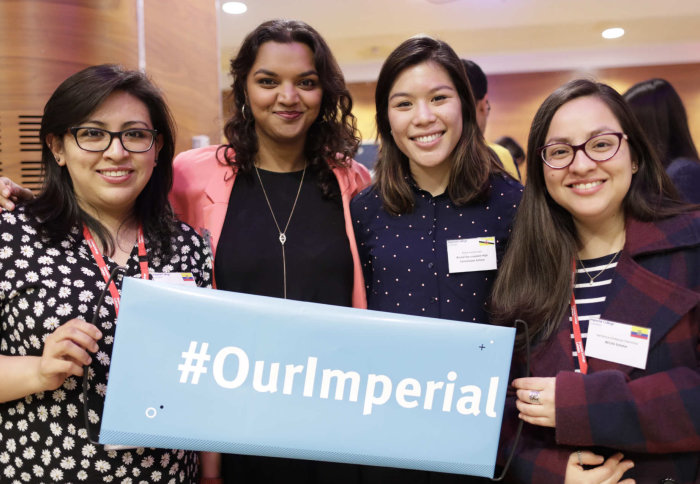Imperial welcomes student visa reform

Imperial has welcomed the government’s proposal to allow international students to remain in the UK for two years after graduation to find a job.
The change will apply to international students in the UK who start courses at undergraduate level or above from next year onwards.
The move follows campaigning from Imperial College London for precisely this reform.
Last month President Alice Gast wrote in the Daily Telegraph challenging the government to make post-study work visas central to planned immigration reforms.

Around 60 per cent of Imperial’s students are from outside the UK.
At Imperial’s Enterprise Lab for student entrepreneurs 70% of the participants are foreign students and European students are twice as likely than others at Imperial to become student entrepreneurs.
President Alice Gast wrote: “British higher education should be much more than just a successful export.
"According to the Entrepreneurs Network, 49 per cent of Britain’s 100 fastest-growing start-ups have at least one immigrant co-founder, while of our 14 billion-dollar start-ups nine have at least one foreign-born co-founder. New post-study work visas for all Stem graduates would help to retain these brilliant minds.”
In her annual address, President Gast called on the government to be “ambitious in liberating mobility for academics and students”.
One of her recommended proposals included “Two-year post-study work visas for all STEM graduates to help meet the UK’s £1.5 billion skills shortage and future-proof businesses.”
Writing in the Financial Times last year President Gast noted that nearly three-quarters of the British public support giving international students the right to work in the UK after graduation.
International Student entrepreneurs

Many of Imperial’s international students stay in London following graduation to turn their ideas into startups and businesses.
Dutch alumnus Leslie Nooteboom and co-founders co-founders Maya Pindeus, Raunaq Bose are staying in London to develop their AI company for self-driving vehicles, Humanising Autonomy. The software help autonomous vehicles better predict human behaviour such as pedestrians deciding to dart across the road.
Malaysian entrepreneur Faii Ong is building a medtech business Gyrogear in the UK. The company is developing wearable technology that can improve quality of life for people who suffer from hand tremors – such as those with Parkinson’s disease.
American MBA graduate Suresh Jones is developing his company Nutribloc – which produces a drinkable plant-based snack product.
Kazakh theoretical physicist Nadal Sarkytbayev founded fintech firm ApTap and chose to stay in London to grow his company which is developing a personal finance tool to manage bills and subscriptions.
Article text (excluding photos or graphics) © Imperial College London.
Photos and graphics subject to third party copyright used with permission or © Imperial College London.
Reporter
Stephen Johns
Communications Division